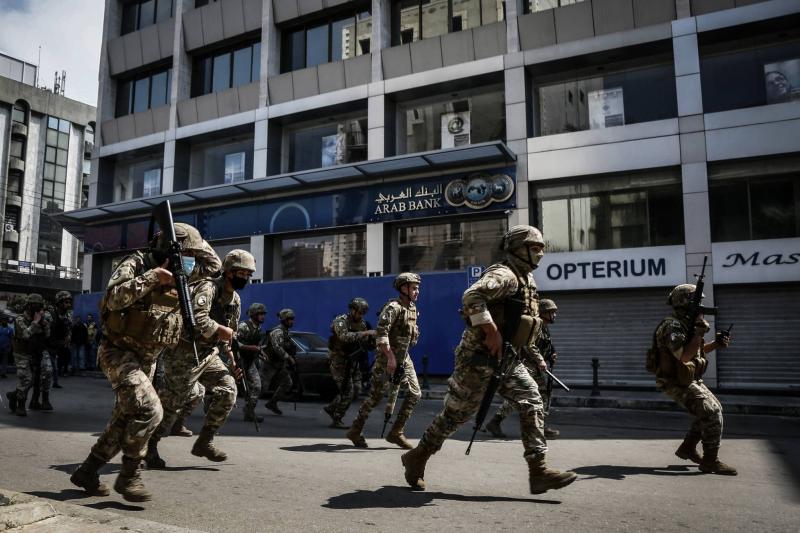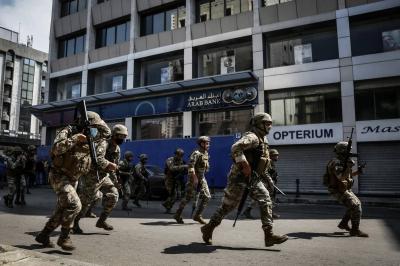The city of Tripoli witnessed armed clashes, raising concerns and tension among civilians in the area, as the city turned into a battleground between several young men, resulting in accidental injuries. In detail, violent confrontations erupted among a group of young men over an individual dispute that escalated into gunfire in the Al-Qubbeh - Al-Rijee area on Tuesday evening. Following this, the Lebanese Army conducted extensive deployments in the area of the clashes in search of the shooters, but soon left the location, only for the clashes to resume and intensify.
In this context, expert in Islamic movements, Ahmad Al-Ayoubi, remarked that the warring parties are groups formed from local neighborhoods, some of which are funded through drug trade and promotion while others are backed by political factions like the Resistance Brigades. He indicated that what is happening reflects a "diminishment of the state," leading to security breaches and chaos. In an interview with "Wardna," he stated, "What happened is a model of this dangerous breakdown, and evidence that the state is fading, its prestige has crumbled, and its impact has nearly vanished," adding, "We face a stagnation and collapse of all state components... With the continued decline, security forces are gradually unable to fulfill their duties and maintain order."
Al-Ayoubi pointed out that maintaining security is not solely the army's responsibility, which is being drained by internal conflicts not confined to a single geographical area, and called for assistance and support for the army. He sounded the alarm, saying: "We are headed towards an extremely dangerous situation for social security, due to the executive authority's willful negligence of the Lebanese Army and security forces, in addition to the illegal weapons that have led to the disintegration of the state."
Former MP Mustafa Alloush asserted that the absence and collapse of the state is fundamental to the ongoing lawlessness. He remarked, "The country is in chaos, and no one fears the law or punishment due to the absence of accountability." He added that "the army is exhausted, and the economic situation affects its performance, which is a result of the state's deterioration."
It is worth noting that the World Bank classified Tripoli in 2019 as one of the poorest cities on the Mediterranean coast. It encompasses some of the poorest neighborhoods in Lebanon, despite the city's long history, known as "Lebanon's Second Capital" for its rich archaeological sites and traditional industries, along with the port, Rashid Karami Exhibition, and other facilities that could, if well invested, lift the specter of poverty and deprivation from its residents.




